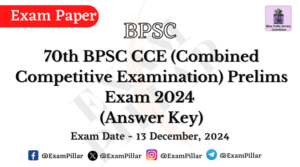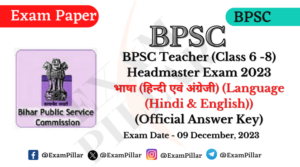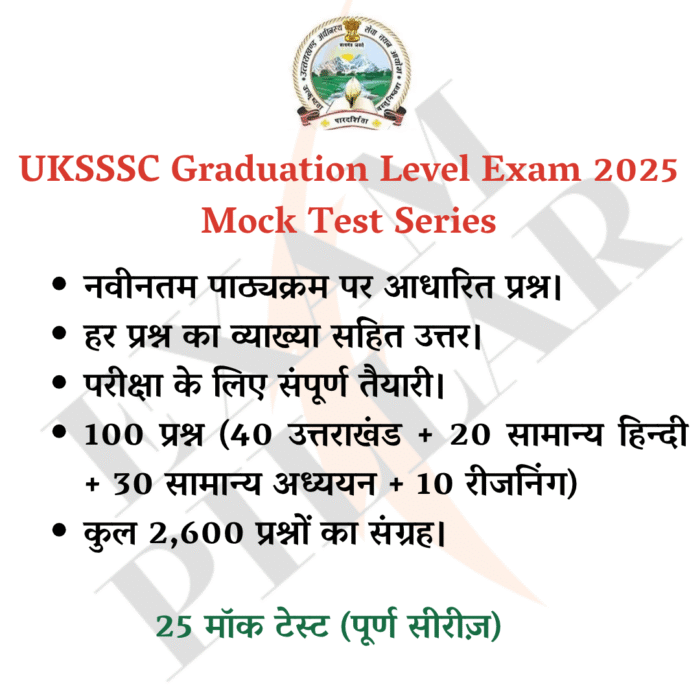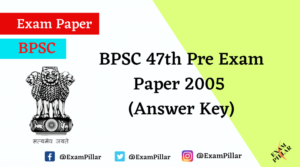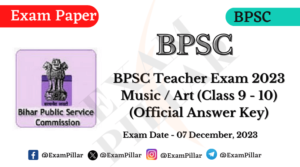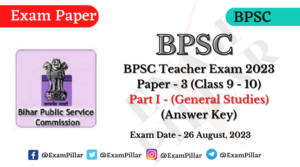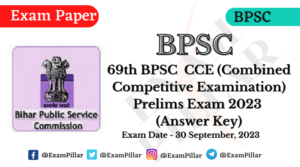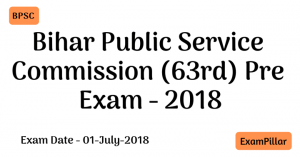81. Her husband died. She heard the news. She fainted. (Use a preposition with a noun or gerund to join the sentences)
(A) She fainted when she heard the news of her husband’s death.
(B) On hearing the news of her husband’s death she fainted.
(C) As soon as she heard the news of her husband’s death she fainted.
(D) More than one of the above
(E) None of the above
Show Answer/Hide
82. He jumped up. He ran away. (Use a participle to join the sentences)
(A) Jumping up he ran away.
(B) He jumped up and ran away.
(C) He ran away after jumping up.
(D) More than one of the above
(E) None of the above
Show Answer/Hide
83. Insert the punctuation marks in the following : She read the short story Kafan and adapted it to a radio play
(A) She read the short story ‘‘Kafan’’ and adapted it to a radio play.
(B) She read the short story ‘Kafan’ and adapted it to a radio play
(C) She read the short story ‘Kafan’ and adapted it to a radio play.
(D) More than one of the above
(E) None of the above
Show Answer/Hide
84. If he is at home, I shall see him. It is a
(A) simple sentence
(B) compound sentence
(C) complex sentence
(D) More than one of the above
(E) None of the above
Show Answer/Hide
85. You must hurry or you will miss the train. It is a
(A) simple sentence
(B) compound sentence
(C) complex sentence
(D) More than one of the above
(E) None of the above
Show Answer/Hide
Directions (Q. Nos. 86 to 95) : Choose the correct option of the following questions.
86. ‘You ate fish’ is an example of
(A) clause
(B) phrase
(C) sentence
(D) More than one of the above
(E) None of the above
Show Answer/Hide
87. Which one of the following options is correct about the sentence, ‘‘That which cannot be read.’’?
(A) Illegible
(B) Ineligible
(C) Invisible
(D) More than one of the above
(E) None of the above
Show Answer/Hide
88. The antonym of the word ‘scurrilous’ is
(A) outrageous
(B) decent
(C) moderate
(D) More than one of the above
(E) None of the above
Show Answer/Hide
89. ‘‘I left that house.’’
What is the underlined word ‘that’, according to the English grammar?
(A) Demonstrative pronoun
(B) Adverb
(C) Noun
(D) More than one of the above
(E) None of the above
Show Answer/Hide
90. The correctly spelt word in the following is
(A) Synchronize
(B) Synchromize
(C) Syncronize
(D) More than one of the above
(E) None of the above
Show Answer/Hide
91. The misspelt word in the following is
(A) Irrepressible
(B) Beaurocracy
(C) Pussilanimity
(D) More than one of the above
(E) None of the above
Show Answer/Hide
92. A person who is bad in spelling is known as
(A) philogynist
(B) phonologist
(C) cacographist
(D) More than one of the above
(E) None of the above
Show Answer/Hide
93. The word most nearly opposite to the word ‘opprobrious’ is
(A) Vituperative
(B) Complimentary
(C) Truculent
(D) More than one of the above
(E) None of the above
Show Answer/Hide
94. The term ‘quinquennial’ stands for
(A) happening in four years
(B) happening in six years
(C) happening in seven years
(D) More than one of the above
(E) None of the above
Show Answer/Hide
95. A compound sentence consists of
(A) two principal clauses
(B) one principal clause
(C) one principal clause and one subordinate clause
(D) More than one of the above
(E) None of the above
Show Answer/Hide
96. The Prince said, ‘‘It gives me great pleasure to be here this evening.’’ (Change into reported speech)
(A) The Prince said, it gives me great pleasure to be here this evening.
(B) The Prince said, it gave me great pleasure to be here this evening.
(C) The Prince said, it had given him great pleasure to be here this evening.
(D) More than one of the above
(E) None of the above
Show Answer/Hide
97. He inquired whether his name was not Ahmed. (Change into direct speech)
(A) He said to him, ‘Is not your name Ahmed?’
(B) He said to him, ‘‘Is not your name Ahmed?’’
(C) He said to him, ‘Is your name not Ahmed?’
(D) More than one of the above
(E) None of the above
Show Answer/Hide
98. dot your is and cross your ts then add two 5s and four 2s (Use punctuation marks)
(A) Dot your is and cross your t’s; then add two 5’s and four 2’s.
(B) Dot your is and cross your t’s; then add two 5’s and four 2’s
(C) Dot your i’s and cross your t’s; then add two 5’s and four 2’s.
(D) More than one of the above
(E) None of the above
Show Answer/Hide
99. ‘Moonlight’ is a compound word that is formed by
(A) noun + noun
(B) adjective + noun
(C) noun + gerund
(D) More than one of the above
(E) None of the above
Show Answer/Hide
100. ‘Red-hot’ is a compound word that is formed by
(A) noun + noun
(B) adjective + adjective
(C) noun + gerund
(D) More than one of the above
(E) None of the above
Show Answer/Hide


